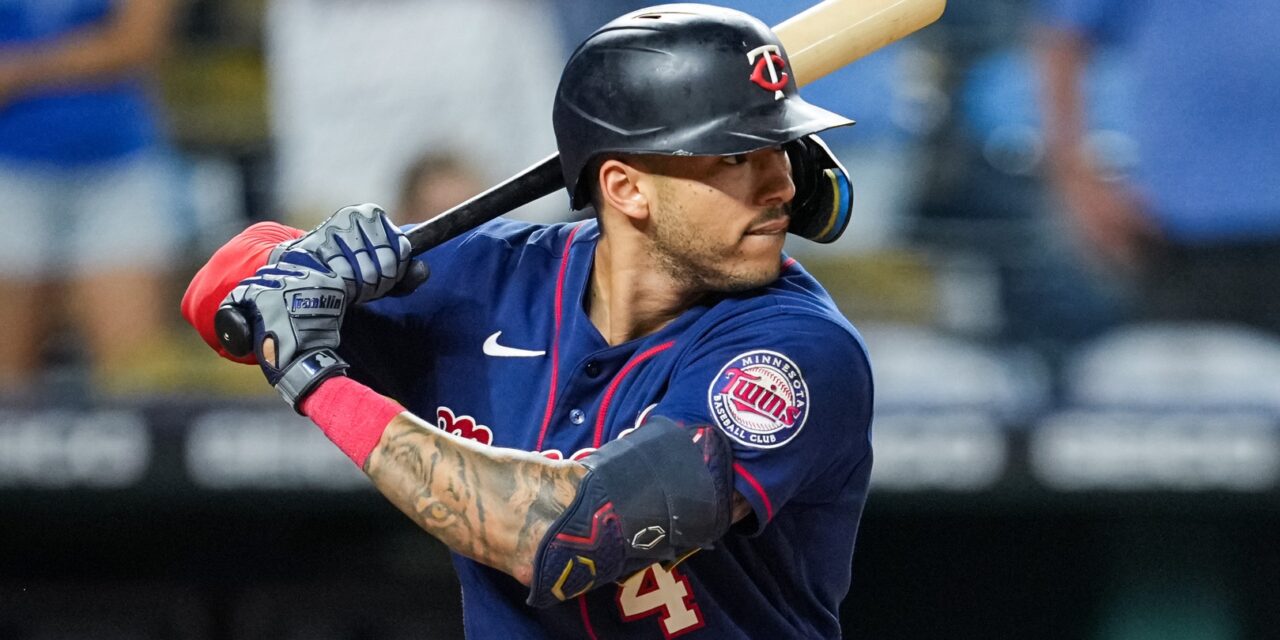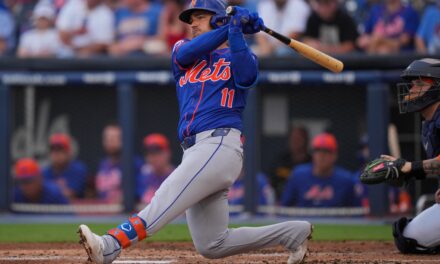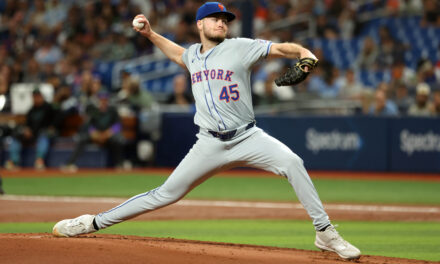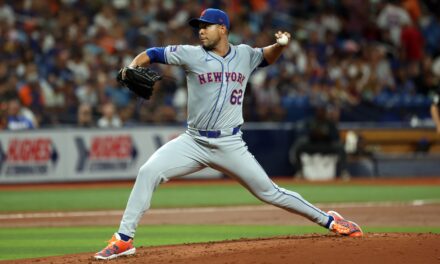The New York Mets sent shockwaves through the baseball world when it was reported that they signed star shortstop Carlos Correa to a 12-year, $315 million contract last December. The deal, which came only after Correa’s prior agreement with the San Francisco Giants fell through, was thought to put a cap on yet another exorbitant spending spree by owner Steve Cohen last offseason that also saw the team bring in the likes of Justin Verlander and Kodai Senga.
At the time of the initial deal with New York, Correa’s arrival was met with widespread excitement. He was the potential last piece to a lineup that engineered a 101-win season the year prior and was a perfect solution to their need for both a power bat and a third baseman, as he agreed to move to the hot corner full-time to ensure Francisco Lindor could remain at shortstop.
It wasn’t meant to be, however, as the Mets flagged the same issue that the Giants did during his physical and raised concerns about the stability and durability of his right leg, which was surgically repaired in 2014. The two parties attempted to reach common ground and salvage the pact, but Correa ultimately ended up re-signing with the Minnesota Twins on a six-year, $200 million deal in January.
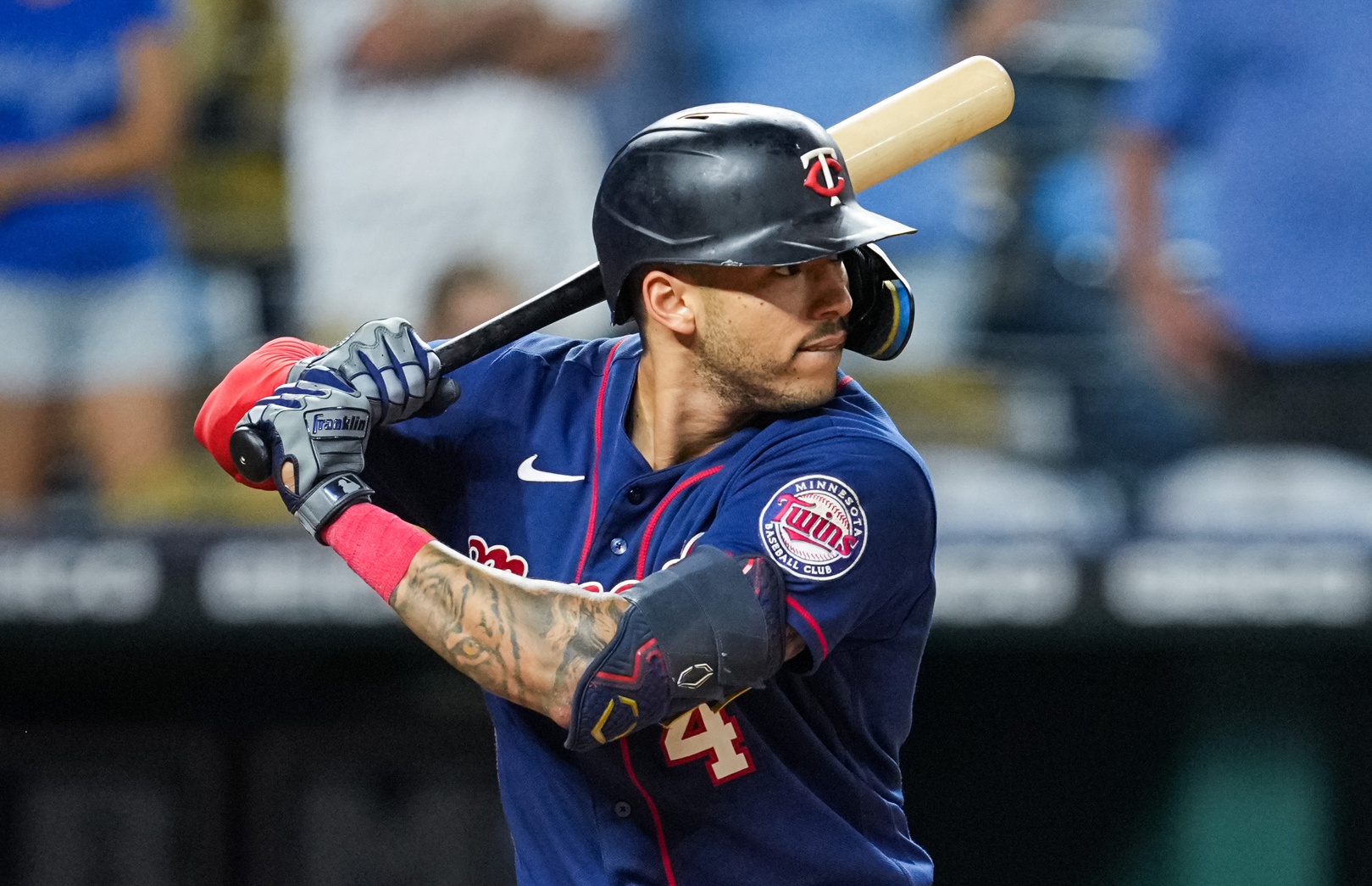
Jay Biggerstaff-USA TODAY Sports
With Correa no longer in the picture, the Mets opted to stick with Brett Baty and Eduardo Escobar as their options at third base for a majority of the season. Escobar manned the position for the first several weeks of the year and had trouble recapturing the magic he finished the 2022 season with, slashing .158/.197/.333 through 62 plate appearances in March and April before ultimately being dealt to the Los Angeles Angels in June.
Baty, who entered the year as MLB’s No. 19 prospect according to Pipeline, was called up in mid-April after tearing up Triple-A to open the season. With Correa as part of the initial equation, Baty found himself positionless and in a spot where left field may have been his most logical destination. With that situation behind him, though, Baty took the reins at third with an opportunity to showcase his talent and lock himself into the position for the foreseeable future.
While Baty started off hot with a .861 OPS and 142 wRC+ in his first 10 games, the rest of the season has been a bit of a drag for him up to this point. He’s currently slashing .218/.287/.327 with a 73 wRC+ and -0.3 fWAR, and there aren’t a ton of positives to point to in his adjustment to the majors as of now. His groundball rate, which was a knock against him in the minors, is far too high and he’s had trouble tapping into his raw power while also being inconsistent and even uncomfortable defensively. There’s plenty of time for Baty to come into his own and realize his potential, but that reality may still be a ways away.
In total, Mets third basemen have hit .213/.273/.335 with a 69 wRC+ and -1.9 fWAR, both of which are the worst in the league. However, Correa has struggled for the Twins as well to begin his new contract with the Twins.
Despite Correa opting out of his initial three-year, $105 million deal with the team, the Twins pounced on the unforeseen opportunity to bring him back this offseason. It was for good reason, too, as he slashed .291/.366/.467 with a 140 wRC+ and 4.3 fWAR in Minnesota in 2022 while building upon his reputation as one of the game’s premier players. 2023 has been a grind for him, however, as he has hit just .229/.310/.396 with a 93 wRC+ and 17 home runs in 126 games thus far. His defense has remained superb, but he has also continued to see a significant decline in his speed and baserunning ability, largely due to dealing with plantar fasciitis in his left foot since May. The long-term outlook doesn’t appear great at this exact moment in time, but with Correa remaining a valuable leader in the clubhouse as the Twins march toward a division title, Minnesota wouldn’t mind delaying that discussion.
The Mets surely would have benefitted from having Correa around this season, and it’s possible this season could’ve played out a bit differently had he been in the fold. With all of the concerns about how both he and his contract will age, however, New York could very well end up looking smart, sacrificing its short-term outlook for the future by passing on Correa and giving Baty an extended opportunity while having the freedom to look elsewhere for a solution down the road.


